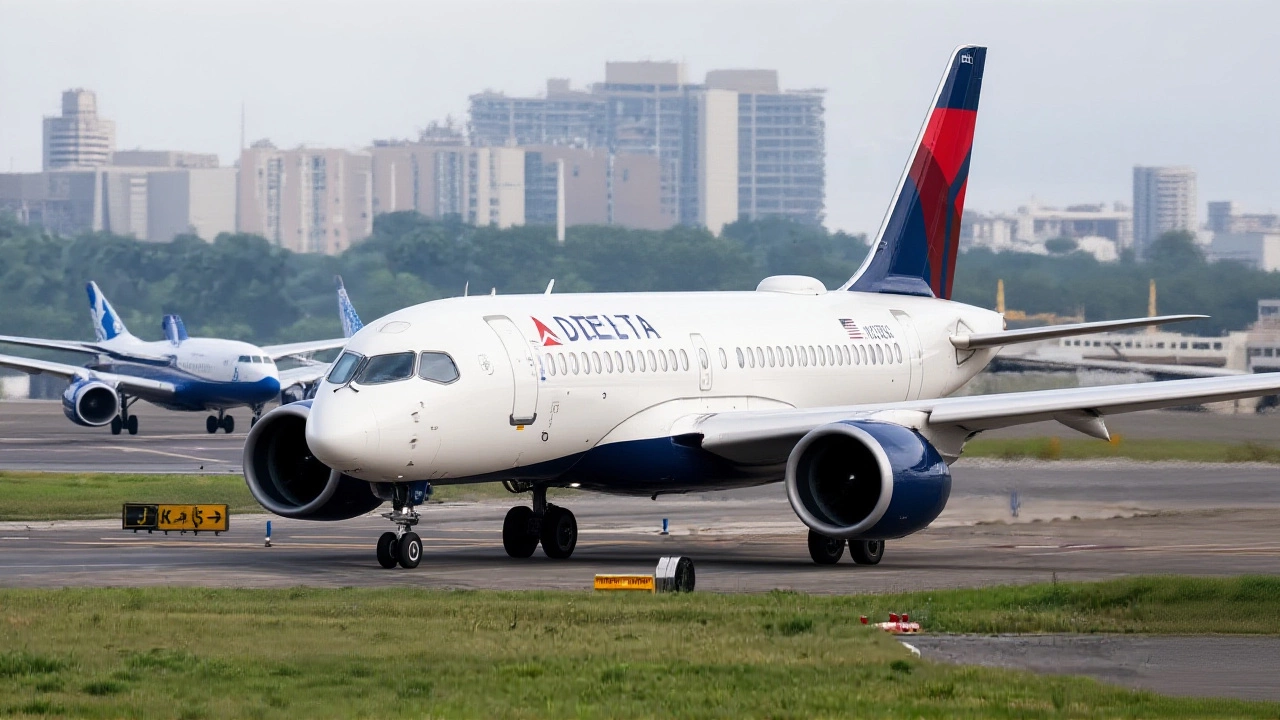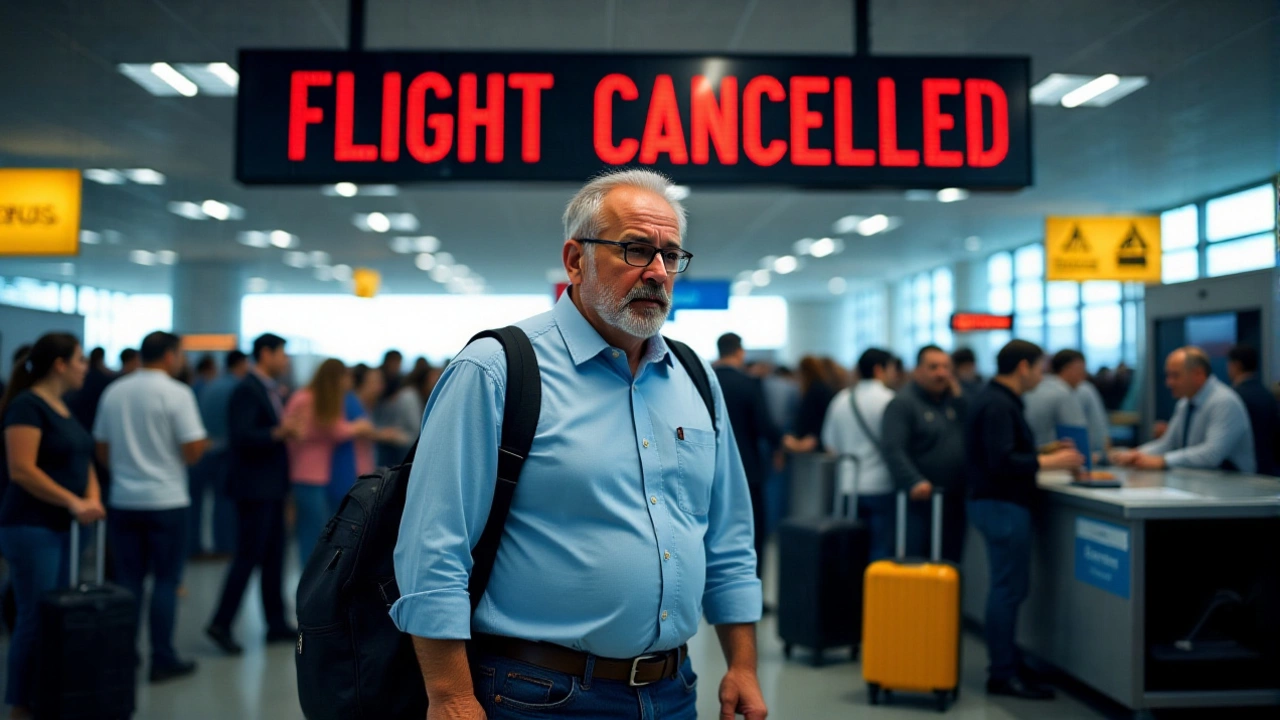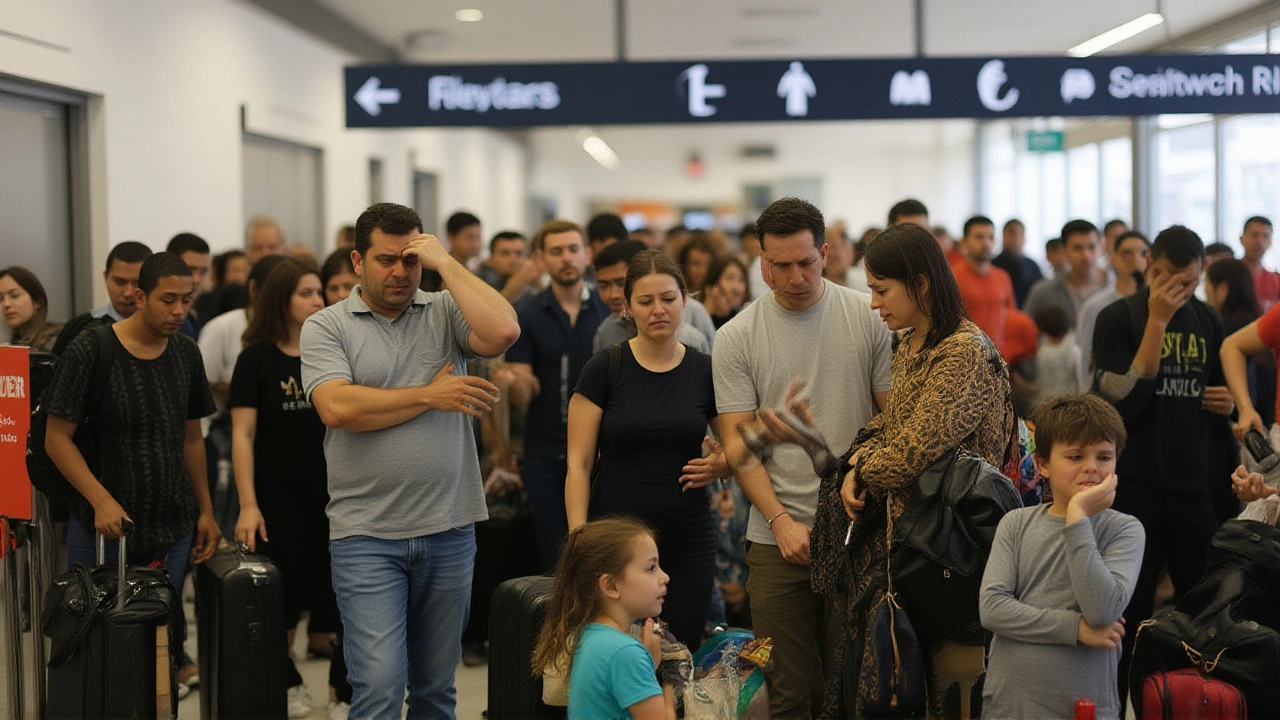When Delta Air Lines flight 898, a Boeing 757, turned back to Atlanta on Oct 19, 2025, more than 200 passengers cited a smoky cabin odor that forced the crew to abort the scheduled run to Los Angeles. The airline, led by CEO Edward H. Bastian, issued a brief statement emphasizing passenger safety while investigators began a routine inspection.
What Happened on Flight 898?
According to the airline’s official release, the aircraft departed Hartsfield‑Jackson Atlanta International Airport at 10:05 a.m. local time, climbing to cruising altitude of 35,000 ft when several travelers reported a distinct, acrid smell permeating the cabin. Within minutes, flight attendants confirmed that the odor resembled smoke, prompting the pilots to declare an emergency and initiate a return to the point of origin.
The incident unfolded midway over Alabama, roughly 200 nm east of Atlanta. The cockpit crew announced the decision over the public address system, assuring passengers that the aircraft would make a safe landing back at ATL. The plane touched down at 11:22 a.m., and emergency services met the jet on the ramp, though no fire suppression systems were activated.
Why the Crew Turned Back
Standard operating procedures for U.S. carriers dictate that any suspected smoke or fumes in the cabin must be treated as a potential fire until proven otherwise. In this case, the flight deck consulted the aircraft’s smoke detection system, which showed a marginal alarm in the forward cargo hold. Because the Boeing 757’s forward hold houses auxiliary power units and other equipment, any anomaly can quickly become hazardous.
“Our priority is always the safety of everyone on board,” the statement from Delta Air Lines read. “The crew acted in accordance with FAA regulations and returned to Atlanta as a precaution.” The airline has not disclosed whether the source was an electrical fault, a leaking lavatory seal, or something else, but a post‑flight inspection by FAA‑certified technicians is already underway.
Delta’s Safety Protocols in Action
Delta’s response mirrors the airline’s 2023 safety overhaul, which added extra training for cabin crews on detecting and reporting unusual odors. The incident also triggered the airline’s “Rapid Check” workflow: a ground team of mechanics, a fire‑safety specialist, and an avionics engineer are dispatched within 30 minutes of landing.
Within an hour, a spokesperson from the airline confirmed that the aircraft would be taken offline for a “comprehensive inspection”. The Boeing 757, built by The Boeing Company in Arlington, Virginia, is slated to return to service after its airworthiness certificate is re‑issued – a process that, in similar past cases, has taken anywhere from six to twelve hours.

Reactions from Passengers and Industry Experts
Most passengers expressed relief that the flight landed safely. “I was scared at first, but the crew kept us informed and the plane landed without any drama,” said Maria Lopez, a tourist heading to a family wedding in Los Angeles. Others were curious about the cause. “I’ve flown on Delta many times; I trust they’ll get to the bottom of it,” added Tom Harding, a frequent business traveler.
Aviation safety analyst Dr. Karen Patel of the Aviation Safety Institute noted that while such odor‑related diversions are rare, they are not unprecedented. “In the past three years, we’ve seen roughly 0.03% of U.S. commercial flights report cabin fumes. Most of those turn out to be false alarms, but the prudent move is to land and investigate,” she explained.
The Federal Aviation Administration (FAA) has not yet opened a formal investigation, treating the event as a routine safety precaution. However, the agency’s Safety Management System (SMS) requires airlines to file an incident report within 24 hours, which Delta is expected to do.
What This Means for Airline Safety
Occurrences like Flight 898 reinforce the importance of quick decision‑making by flight crews. The incident comes less than two years after the high‑profile Alaska Airlines 737 MAX 9 fire on Jan. 5, 2024, which sparked renewed scrutiny of cabin‑fire detection systems.
For Delta, the short‑term operational impact is minimal. The airline’s daily schedule includes over 5,000 flights, and a single 757 is a small fraction of its fleet. Still, the event may affect passenger confidence on routes that use older aircraft types. Delta has pledged to keep affected travelers updated, rebook them on alternate services, and provide hotel vouchers where layovers are extended.
Looking ahead, the airline plans to accelerate the retirement of its remaining 757s, aiming to replace them with newer, more fuel‑efficient models by 2027. The incident may serve as an additional data point in that strategic decision‑making process.

Key Facts
- Flight: Delta 898, Boeing 757‑200
- Date: October 19, 2025
- Route: Atlanta (ATL) → Los Angeles (LAX)
- Passengers on board: >200
- Reason for return: Reported smoky cabin odor
- Landing time back at ATL: 11:22 a.m.
- CEO comment: “Safety of our customers and employees is always our top priority.” – Edward H. Bastian
Frequently Asked Questions
What caused the smoky odor on Delta Flight 898?
Investigators have not released a definitive cause yet. Early indications point to a marginal alarm in the forward cargo hold, which could stem from an electrical short, a leaking lavatory seal, or a minor fuel‑vapour leak. A full inspection by FAA‑certified technicians is scheduled before the aircraft returns to service.
Were any passengers injured?
No injuries were reported. All passengers and crew disembarked safely, and medical personnel were on standby but not needed.
How will Delta rebook affected travelers?
Delta’s standard protocol is to place affected passengers on the next available flights to Los Angeles, often within 24‑48 hours. Those with longer layovers may receive hotel vouchers and meal allowances as dictated by the airline’s customer‑care policy.
Is the FAA opening an investigation?
The FAA has classified the event as a routine safety precaution and has not launched a formal investigation. However, Delta is required to submit an incident report within 24 hours, after which the FAA may decide on further action.
Will this incident affect Delta’s overall schedule?
The disruption is limited to a single aircraft. With a fleet of over 800 planes, Delta expects no major impact on its daily operations, though some passengers may experience minor delays while rebooking.



